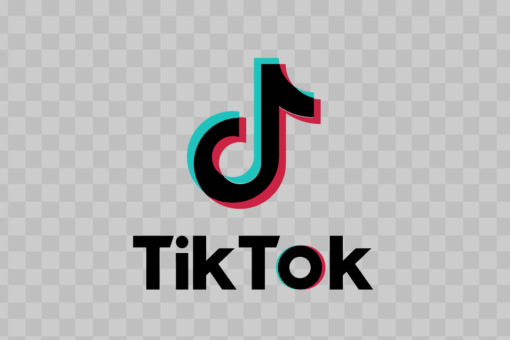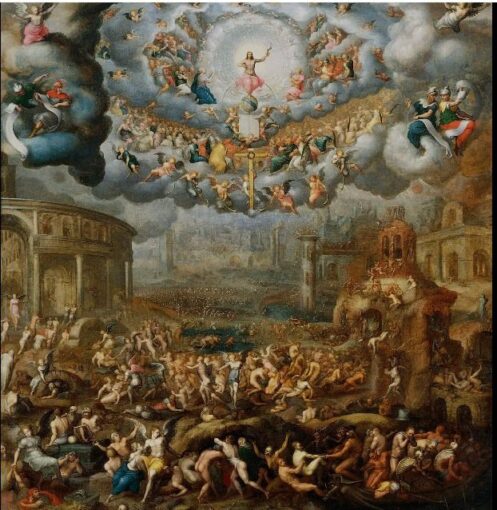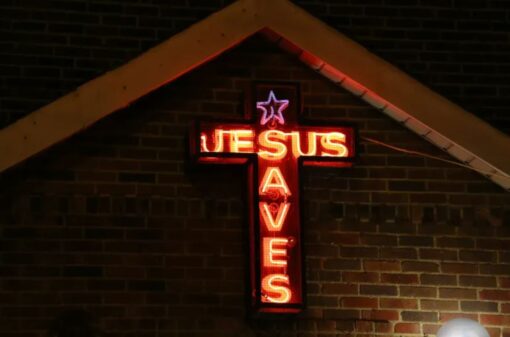The world of social media has become a megaphone for all kinds of voices, and recently a peculiar wave of apocalyptic content has taken over timelines.
On TikTok, a growing number of conservative influencers have been predicting the rapture, warning their audiences that this week could be the moment when life as we know it abruptly ends.
These predictions, framed with urgent tones, Bible references, and emotional pleas, have gone viral, pulling in millions of views and sparking heated debates.
The rise of TikTok rapture predictions highlights not just the fascination with end-times prophecies, but also the way digital platforms amplify religious fervor into global conversation.
TikTok, with its short-form videos and algorithm that thrives on emotionally charged content, has proven fertile ground for apocalyptic ideas.
Conservative voices, already influential in the platform’s religious and political corners, are combining millennial fears with biblical prophecy to present their audiences with an urgent call to prepare.
They cite passages from the Book of Revelation, Daniel, Thessalonians, and Matthew, interpreting world events like wars, natural disasters, and economic instability as signs pointing directly to the rapture.

By presenting these interpretations through fast-paced clips, dramatic background music, and sometimes even augmented visuals of fiery skies or collapsing cities, TikTok creators make ancient prophecies feel immediate, tangible, and terrifying.
The week’s fixation on rapture predictions appears to stem from several overlapping sources. Some cite numerical codes derived from scripture, suggesting that September’s sequence of dates aligns with divine calendars. Others point to the surge of global instability—from tensions in Eastern Europe to Middle East conflicts—as unmistakable evidence that prophecy is unfolding.
Certain influencers argue that the rise of artificial intelligence, cashless payment systems, and global surveillance all reflect the “mark of the beast,” claiming these developments confirm humanity is living in the final days before judgment.
The blending of current affairs with biblical allegory creates a potent mix that feels convincing to many viewers, especially those already inclined to distrust mainstream narratives.
For conservatives on TikTok, this theme dovetails with broader political messaging. Warnings of globalist agendas, cultural decline, and government overreach are packaged seamlessly with calls to repentance and spiritual readiness. By tying politics to prophecy, creators keep their audiences emotionally engaged on multiple levels—both worldly and eternal.
A prediction about the rapture isn’t just about cosmic judgment, it becomes a moral lens through which to view today’s cultural battles. The rapid spread of TikTok rapture predictions illustrates how online influence increasingly blurs the lines between religious conviction, political identity, and entertainment.

Critics, however, see this as yet another example of misinformation thriving in the digital age. Theological scholars have long warned against setting dates for the rapture, noting that Christian scripture itself insists no one knows the day or the hour. Many pastors express concern that sensationalist predictions undermine faith by setting up inevitable disappointment when the rapture fails to materialize.
When content creators proclaim specific timelines that don’t come true, audiences may lose trust not only in those voices but also in the broader message of Christianity.
Still, despite repeated failures of prophecy, new predictions always seem to emerge, reshaped by current events and repackaged for fresh audiences.
What makes the current surge unique is how it reflects generational shifts. Older forms of rapture prophecy thrived in books, pamphlets, and televangelist broadcasts, often tied to major world crises like the Cold War or Gulf Wars. Today, Gen Z and young millennials encounter these same warnings condensed into 30-second clips designed for maximum emotional impact.
The TikTok algorithm ensures that once a user engages with a single rapture video, their feed quickly fills with dozens more, creating a feedback loop of escalating urgency.
Users who might not have sought out end-times content can find themselves pulled into a spiral of fear, fascination, and community, united by the idea that something extraordinary is about to happen.
The language of imminence is part of what makes TikTok rapture predictions so compelling. Influencers tell followers not just that the end might be near, but that it could happen this very week. Such immediacy taps into a deep psychological need for certainty in uncertain times. Global financial pressures, climate change anxieties, and geopolitical instability all create a backdrop of unease.
The idea that these anxieties point to something bigger, that history is reaching its divinely orchestrated climax, provides both a sense of order and a call to action. Viewers are told to prepare spiritually, to warn loved ones, and to share the videos before it’s too late. Virality becomes not just a metric of online success but an act of evangelism.
This phenomenon also highlights the monetization of digital prophecy. Many of the most prominent TikTok voices predicting the rapture funnel viewers toward merchandise, books, or paid communities. Some encourage donations to ministries, while others link their prophecies to political fundraising campaigns.
The urgency of end-times content creates a captive audience, and some critics argue that this vulnerability is being exploited. The blending of sincere conviction with profit motives complicates the picture, raising ethical questions about who truly benefits from waves of apocalyptic fear.
At the same time, TikTok rapture predictions are also a form of cultural expression. They reflect centuries of Christian apocalyptic thought, refracted through the lens of modern technology.
Even outside faith communities, such content fascinates because it taps into universal human questions: What happens at the end of the world? How do we make sense of suffering? Are we living in extraordinary times, or are these patterns of panic repeating endlessly?
The videos function almost like modern folklore, blending personal testimony, biblical interpretation, and collective storytelling into a new digital mythos.

For the platform itself, the popularity of such content raises difficult challenges. TikTok has faced scrutiny for amplifying conspiracy theories and politically charged misinformation, and rapture predictions hover in a grey area between religious speech and misleading content.
On one hand, users have the right to express spiritual beliefs. On the other, the spread of specific, time-stamped predictions can lead to real-world consequences, including panic, disillusionment, or even harmful behavior.
TikTok’s moderation policies have not yet developed a clear stance on religious prophecy, leaving space for creators to thrive.
Ultimately, whether or not the rapture happens this week, the predictions themselves reveal more about the cultural landscape than about divine timelines.
The hunger for certainty, the blending of politics with prophecy, the influence of digital platforms, and the enduring allure of apocalyptic narratives all converge in this viral moment.
For those who believe, TikTok serves as a powerful tool of evangelism. For skeptics, it demonstrates how easily narratives can spread without evidence. And for everyone caught in between, it is a reminder of how digital media continues to shape our sense of reality, urgency, and the future.
As this week progresses and the sun rises as usual, TikTok rapture predictions will likely evolve into new explanations—claims that the timeline was miscalculated, or that events are still unfolding in unseen ways.
The cycle of prophecy, disappointment, and reinterpretation is as old as religion itself, but in the digital era it plays out faster and louder than ever before.
The fascination with the rapture on TikTok is not just about the end of the world, it is about how humans seek meaning in chaotic times, how communities are formed through shared belief, and how technology amplifies age-old hopes and fears into global phenomena.


